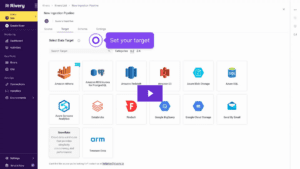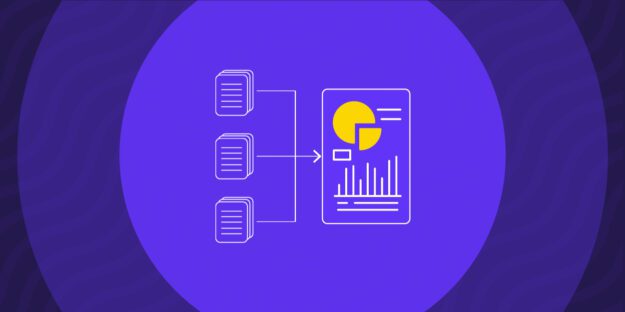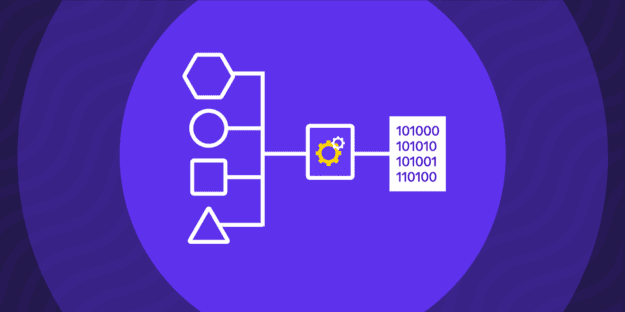Managing data efficiently in PostgreSQL databases is essential for valuable data insights. Many organizations struggle with disparate data silos and inconsistent formats. However, this is where ETL to PostgreSQL tools are vital.
These tools streamline the data pipeline, seamlessly extracting data from various sources, transforming it to meet specific requirements, and loading it into PostgreSQL databases for analysis.
In this article, we’ll detail the best PostgreSQL ETL tools for efficient data handling—ensuring your organization gets the best insights from its data.
What is PostgreSQL?
PostgreSQL is considered the most powerful feature-rich open-source relational database management system worldwide. It offers scalability, reliability, and extensibility, resulting in widespread adoption across various industries.
The main features of PostgreSQL include support for advanced data types like JSON and XML, robust indexing mechanisms, and compliance with ACID (Atomicity, Consistency, Isolation, Durability) properties.
In addition, PostgreSQL’s support for simultaneous transactions and multi-version concurrency control (MVCC) provides optimal performance in high-traffic environments.
PostgreSQL is open-source software released under the PostgreSQL License—which means it can be freely downloaded, used, modified, and distributed without any licensing fees. This makes it an attractive option for organizations looking to minimize costs.
Factors to Consider when Choosing Your PostgreSQL ETL Tools
When choosing the best PostgreSQL ETL tool for your company, there are many factors you must consider:
Features and Functionalities
Consider the features and functionalities offered by each PostgreSQL tool, such as data extraction, transformation, and loading capabilities.
These features support real-time data processing, scheduling and monitoring functionalities, and integration with PostgreSQL-specific features.
Compatibility with PostgreSQL
Your ETL tool must be compatible with PostgreSQL databases. The compatibility will ensure efficient data transfer and compatibility with PostgreSQL’s data types, structures, and query language.
Ease of Use
The user-friendliness of the ETL tool’s interface, ease of setup and configuration, availability of pre-built connectors and templates, and support for visual data pipeline design are highly significant.
One of the main advantages of using ETL tools is you don’t need to hire expensive technicians, with vast coding experience, to handle the systems. However, this can become an issue if the ETL tool isn’t easy to use.
Scalability
You must consider the potential of the ETL tool to scale according to your organization’s needs. The tool should support large volumes of data and accommodate evolving business requirements.
Reliability
The track record of the ETL tool in terms of performance, uptime, data accuracy, and error handling capabilities—as well as the availability of customer support and maintenance services.
Industry Reputation and User Reviews
Feedback and reviews from existing users and industry experts regarding the ETL tool’s effectiveness, reliability, and suitability for PostgreSQL environments are vital.
The Top 7 PostgreSQL ETL Tools
1. Rivery
Rivery has strong data integration and ETL capabilities. The platform lets you extract, transform, and load data effortlessly from various sources—at scale and speed—without requiring coding expertise.
Rivery’s key features include data migration, usage monitoring, and normalization. You can also use Rivery to integrate with BigQuery, Snowflake, Microsoft Azure, and Microsoft SQL Server. Rivery’s compatibility with PostgreSQL databases makes it an ideal choice for organizations seeking a flexible and scalable ETL solution.
Pros:
- Instinctive user interface.
- A comprehensive library of pre-built data connectors.
- Scalable infrastructure with automatic scaling.
- Reliable customer support team.
Cons:
- Lack of advanced error handling features.
Pricing Model: Rivery offers a pay-as-you-go pricing model with tiered plans based on usage metrics, such as data volume and frequency of data transfers. Plans include starter, professional, and enterprise. Rivery’s free trial includes access to all of the professional plan features, for 14 days or 1,000 free credits (worth $1,200) of usage, whichever expires first. When your trial period ends, you can continue using Rivery by registering for any on-demand plan, or by contacting us to explore our annual and Enterprise plans.
2. Fivetran
Fivetran is a managed ETL platform that specializes in automated data pipelines. It offers native integration with PostgreSQL databases, allowing your organization to sync data from various sources into a PostgreSQL environment.
Fivetran’s key features include automated data synchronization, a zero-maintenance approach, automatic schema migration, and integration with various data sources. The platform offers 400+ fully managed connectors, single sign-on (SSO), and 24/7 global email support.
Pros:
- Fully managed solution
- Easy setup and configuration
- Real-time monitoring and alerting
- Continuous data synchronization
Cons:
- Limited customization options
- Can struggle with complex data transformation
- Expensive for large organizations
Pricing structure: There’s no public pricing available for Fivetran, but there are some examples of the potential cost on the website. However, the more rows of data you must extract, the more it will cost. So it might not be the best fit if you extract large amounts of data.
3. Apache NiFi
Apache NiFi automates data flows with its visual programming interface and extensive library of processors. It supports real-time data streaming, routing, and transformation tasks, making it perfect for organizations with various data integration requirements.
The main features of Apache Nifi include its visual programming interface, real-time data streaming, extensive library of processors, and scalable architecture.
Pros:
- Flexible and scalable architecture
- Extensive community support
- Visual data flow design
- Built-in data provenance
- Can execute jobs with multithreading
Cons:
- Steeper learning curve for complex workflows
- Limited documentation versus other tools
- It’s not as scalable as other tools.
Pricing structure: Apache NiFi is an open-source project that provides free access. Support and services may be available through third-party vendors.
4. Postgres-XL
Postgres-XL develops PostgreSQL with horizontally scalable capabilities, allowing your organization to scale deployments. It supports transparent sharding and distributed query processing, making it suitable for large-scale data warehousing and analytics applications.
The tool’s key features include horizontal scalability, transparent sharding, distributed query processing, and compatibility with the PostgreSQL ecosystem. The tool can also handle various workloads, including GIS geospatial and OLTP write-intensive workloads.
Pros:
- Horizontal scalability for large datasets
- Compatibility with PostgreSQL’s SQL syntax
- Transparent sharding for distributed data
- Distributed transaction support
Cons:
- Limited community support
- Complexity in setup and configuration
Pricing structure: Postgres-XL is an open-source project with free access to its software. However, support and additional services may be available through third-party vendors.
5. ETLeap
ETLeap is a cloud-based ETL solution that prioritizes simplicity and efficiency. With its drag-and-drop interface and library of pre-built connectors, ETLeap lets your organization build and deploy data pipelines without writing code.
ETLleap can integrate with Amazon Redshift, Snowflake, and Amazon S3. Likewise, the key features include its intuitive user interface, rapid deployment of data pipelines, support for batch and real-time processing, and robust error-handling capabilities.
Pros:
- Intuitive user interface
- Rapid deployment of data pipelines
- Support for batch and real-time processing
- Robust error-handling capabilities
Cons:
- Limited customization options
- Basic monitoring and alerting features
Pricing structure: ETLeaps pricing is based on active pipelines per month. However, the tool offers a free trial to gauage whether it meets requirements.
6. Alooma
Alooma specializes in real-time data streaming and transformation, offering native connectors for PostgreSQL databases. Its dashboard and alerting features let you monitor data flows and ensure data quality and consistency.
Alooma’s main features include a code engine, a data mapper, a restream queue for error processing, and real-time data streaming.
Pros:
- Real-time data processing capabilities
- Intuitive dashboard for monitoring data flows
- Extensive connector library
- Alerting and monitoring features
- Can execute jobs with multithreading
Cons:
- Limited customization options
- It’s a steeper learning curve for advanced features
Pricing structure: Alooma offers subscription-based pricing with tiered plans based on data volume and the number of data sources. Plans include standard and enterprise tiers.
7. Hevo Data
Hevo Data is a unified data integration platform that simplifies ingesting data from various sources into PostgreSQL databases. First founded in 2017, its automatic schema detection capabilities enable users to set up data pipelines quickly and easily.
Hevo Data’s main features include automated pipelines, data collection from over 100 sources, and excellent scalability potential.
Pros:
- Intuitive interface for setting up data pipelines
- Automatic schema detection and mapping
- Real-time data replication capabilities
- Error handling and data enrichment features
Cons:
- Pricing may be higher for larger data volumes
Pricing structure: Hevo Data has various pricing options, including a free, starter, and business plan to meet different requirements.
How to Optimize Data Management Workflows Using PostgreSQL ETL
Once you’ve picked the right tool, it’s time to optimize your data. Here are some crucial tips to follow:
- Define Data Integration Workflows: Your organization should define clear integration workflows after choosing the ETL tool. Outline data transformation requirements, such as cleansing, normalization, enrichment, and aggregation to provide consistency.
- Implement Automated ETL Processes: Automation is one of the main benefits of an ETL process. You should use PostgreSQL ETL tools to streamline data integration workflows and minimize manual intervention
- Optimize Performance and Scalability: Leverage parallel processing, partitioning, and indexing to optimize the performance and scalability of your PostgreSQL ETL processes.
- Monitor and Measure Performance: Implement monitoring and performance measurement tools to track the performance of your PostgreSQL ETL processes in real time.
FAQ About PostgreSQL ETL Tools
What Functionalities Do PostgreSQL ETL Tools Typically Offer?
PostgreSQL ETL tools offer a range of functionalities to facilitate the ETL process. These include:
- Data extraction from various sources, including databases, files, APIs, and cloud services.
- Data transformation using SQL queries, data mapping, cleansing, and enrichment.
- Data loading into PostgreSQL databases with support for batch and real-time processing.
- Workflow automation, scheduling, and monitoring of ETL jobs.
- Support for data synchronization, replication, and change data capture (CDC).
How Do PostgreSQL ETL Tools Handle Data Transformation?
PostgreSQL ETL tools allow data transformation via SQL-based transformations, data mapping, scripting, and machine learning algorithms.
As a result, your organization can define custom data transformation rules to cleanse, enrich, aggregate, or derive insights from the data before loading it into PostgreSQL databases.
Can PostgreSQL ETL Tools Support Real-Time Data Processing?
Yes, many PostgreSQL ETL tools offer support for real-time data processing—enabling organizations to ingest, transform, and analyze streaming data in near real-time.
These tools include data capture (CDC), event-driven triggers, and stream processing capabilities to handle continuous data streams efficiently.
How Do PostgreSQL ETL Tools Contribute to Data-Driven Decision-Making?
PostgreSQL ETL tools enable data-driven decision-making by your organization with timely, accurate, and actionable insights from data.
They ensure data is cleansed, transformed, and loaded into PostgreSQL databases. In turn, decision-makers can derive insights, identify trends, and make informed decisions.
Moving Forward
Your organization must choose the right ETL tool that’s compatible with PostgreSQL. It will guarantee efficient and successful data management that guides your long-term decisions.
We urge you to explore further and make informed decisions based on your requirements. With the best ETL tool, you can thrive in any industry.
Minimize the firefighting. Maximize ROI on pipelines.





